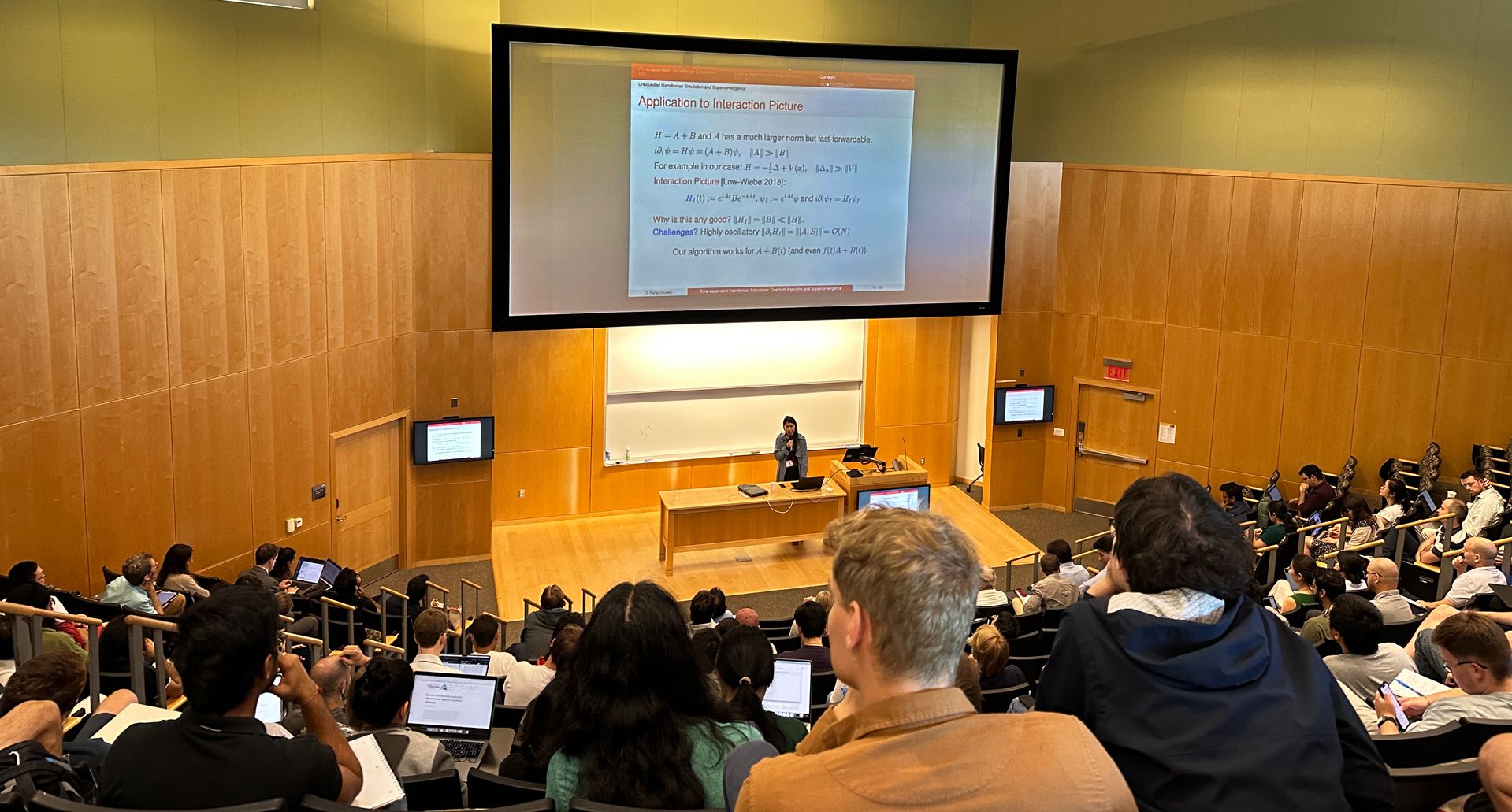QSim Conference Converges for its Second Year at the University of Rhode Island
October 15, 2024
Against the backdrop of a breezy New England summer, more than 180 participants from 17 countries attended a week of talks by some of the leading researchers in quantum simulation for QSim 2024—one of the few conferences dedicated entirely to the discussion and progression of quantum simulation.
“Quantum simulation gives us a way to solve simulation problems that are too big, too hard, and too time consuming for traditional computers both now and in the foreseeable future,” says Garnett Bryant, a physicist at the National Institute for Standards and Technology (NIST) and chair of the QSim organization committee.
Through talks and poster and networking sessions, QSim provides a meeting space for theoretical and experimental researchers to connect and collaborate with an expressed focus on some of quantum simulation’s biggest questions involving algorithms, hardware, machine learning, and beyond.
Following the success of the first QSim conference in Telluride, Colorado in 2023, researchers from industry, government, and academia converged August 12–16 for the second conference at the University of Rhode Island.
Co-sponsored by the NSF Quantum Leap Challenge Institute for Robust Quantum Simulation (RQS) and the University of Rhode Island’s Quantum Information Science program, the 2024 conference spanned a breadth of topics in quantum simulation, from trapped ions to error correction.
Vanita Srinivasa, Founding Director of the University of Rhode Island Quantum Information Science Program, served on the QSim organization committee. “The idea of quantum simulation was instrumental in founding the field of quantum information science as we know it now. The QSim conference highlights the state-of-the-art research being carried out worldwide at the forefront of this foundational area, and bringing this international expertise to the University of Rhode Island has helped build connections between established and growing efforts in the field,” Srinivasa says.
Leonard Kahn, Professor and Chair of the University of Rhode Island’s Physics department, explains that their interest in co-hosting the QSim conference was two-fold: to focus a spotlight on quantum information for the campus community, and to bring awareness of their program to those outside of New England. “On both counts, our goals have been surpassed,” he says.
Kahn also commented on how the perspectives from both academics and industry gave a comprehensive overview of the progress of quantum simulations to address a wide range of problems.
“This balance of theory and experiment, presented by renowned experts, created an ideal blend,” he says.
The organizers of QSim are in the process of selecting a location for its third year, and are focused on sustainable growth.
“We have refined the mission of QSim through discussions with organizers and attendees, and the conference is poised to continue growing as it moves between host institutions each year,” says Andrew Childs, the Director and Principal Investigator of RQS. “As QSim evolves, it remains committed to shaping the future of quantum simulation, creating a space for scientists from around the world to advance the field together.”
